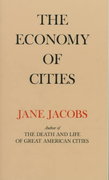Question
If country A breaks WTO law (e.g. by imposing a quota on car imports from country B, illegal under WTO law), and country B can
If country A breaks WTO law (e.g. by imposing a quota on car imports from country B, illegal under WTO law), and country B can prove that it has suffered a prejudice from it, then the WTO may give country B the right to retaliate, even in another product category. Hence, country B may end up imposing a tariff on cheese from country A (in order to exert pressure on country A and incentivize it to comply with WTO law). As an economist, what do you think about this retaliation mechanism and especially its impact on social welfare? Note that we are simplifying the very complex legal processes behind this a bit ... You may consider reasoning in terms of market efficiency.
Step by Step Solution
There are 3 Steps involved in it
Step: 1

Get Instant Access to Expert-Tailored Solutions
See step-by-step solutions with expert insights and AI powered tools for academic success
Step: 2

Step: 3

Ace Your Homework with AI
Get the answers you need in no time with our AI-driven, step-by-step assistance
Get Started


